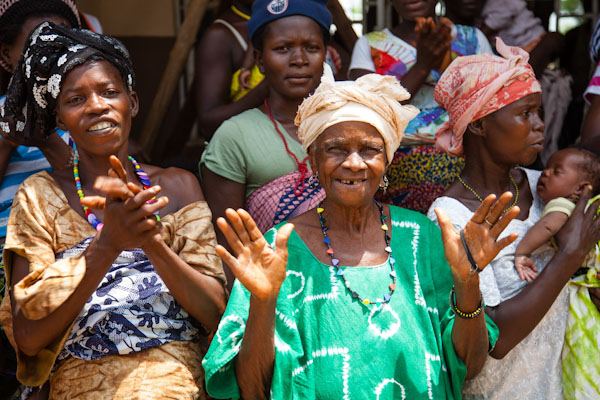
Improving the effectiveness of community-driven development in Sierra Leone

Context
Sierra Leone has witnessed an era of poor governance and civil war, coupled with widespread and chronic poverty. The country has gradually shifted towards decentralised governance. However, women have been traditionally kept away from participating in local governance. International donors, governments and NGOs have been investing substantial resources in the community-driven development approach, which emphasises local participation in and control over project implementation.
The GoBifo pilot project (GoBifo means ‘move forward’ in Krio) was implemented by the Institutional Reform and Capacity Building Project (a joint initiative of the government and the World Bank). It aimed to build social capital and increase the inclusiveness of community decision-making in a post-conflict environment.
Lack of participatory decision-making in local politics was seen by many as a contributor to the long-running conflict in Sierra Leone. However, critical evidence gaps remained in understanding how GoBifo’s community-driven development approach would improve local governance, build institutions, and influence community dynamics and authority structures beyond the immediate sphere of the project activities and delivery of public goods.
GoBifo’s impact evaluation was led by the Evaluations Unit of the Institutional Reform and Capacity Building Project, with technical assistance from the Centre for Evaluation of Global Action. The researchers assessed the project’s impacts on social capital and inclusiveness of community decisions.
Evidence
The findings suggest that GoBifo was a reasonable mechanism to deliver local public goods efficiently, at a low cost and in a transparent manner. However, there is no evidence to show it was an effective method to strengthen social capital or to fundamentally alter local hierarchies and decision-making processes in this context.
Evidence impacts
Type of impact: Change policies or programmes
Decision makers use findings from an evaluation or systematic review to adjust their programming to fix targeting, cash transfer amounts, training modules or other factors that inhibit the policy or programme’s ability to achieve its intended impacts.
This is one of 3ie’s seven types of evidence use. Impact types are based on what we find in the monitoring data for an evaluation or review. Due to the nature of evidence-informed decision-making and action, 3ie looks for verifiable contributions that our evidence makes, not attribution.
Read our complete evidence impact typology and verification approach here.
Close windowThe findings informed changes to the GoBifo operations manual. The manual now focuses on the importance of multi-stakeholder participation, inclusiveness, participation of women and youth, conflict resolution, coordination, and greater monitoring of community participation.
Suggested citation
International Initiative for Impact Evaluation (3ie), 2019. Improving the effectiveness of community-driven development in Sierra Leone (online summary), Evidence Impact Summaries. New Delhi:3ie.
Evidence impact summaries aim to demonstrate and encourage the use of evidence to inform programming and policymaking. These reflect the information available to 3ie at the time of posting. Since several factors influence policymaking, the summaries highlight contributions of evidence rather than endorsing a policy or decision or claiming that it can be attributed solely to evidence. If you have any suggestions or updates to improve this summary, please write to influence@3ieimpact.org